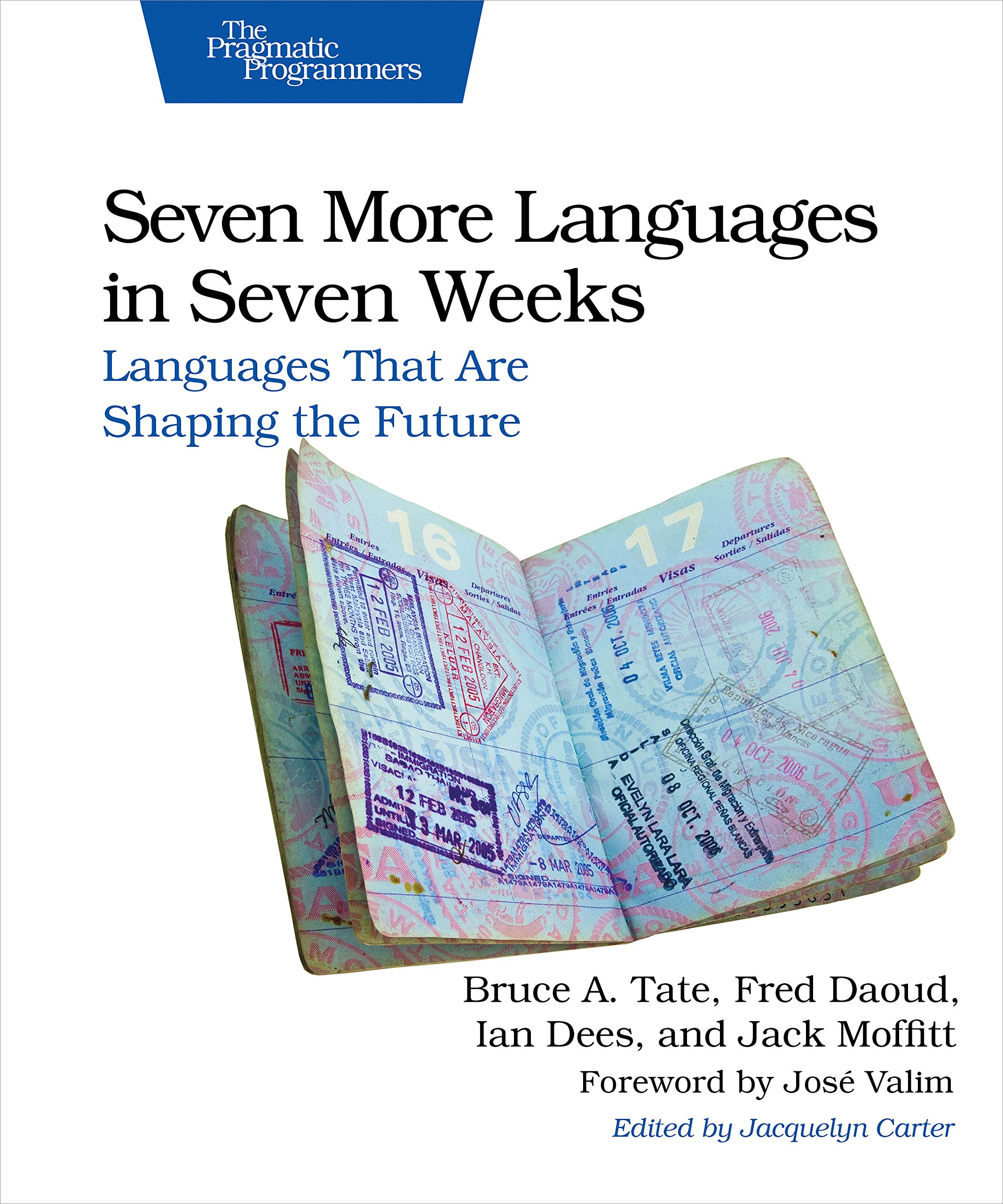

Seven More Languages in Seven Weeks
A**R
Happy
Bought as a gift. Recipient happy.
A**N
Excellent Language Selection, Weak Content, Overall a Success
Seven More Languages in Seven Weeks (SLSW2) is a great book to get exposure to new languages (obviously). The languages covered are: Lua, Factor, Elm, Elixer, Julia, miniKaren, and Idris. However, the content on each language is not exactly masterful. I often got the feeling I was reading a print version of someones blog. Although, I did really appreciate the interviews with the authors and occasionally their views on why the language could be important.If you want to learn Lua you can skip SLSW2 and go straight for Roberto Lerusalimschy's Programming in Lua. Also, if you're looking for a lightning introduction to Julia, check out the tutorial by Learn X in Y. It is pretty clear that neither Jack nor Bruce are Matlab programers ;)Finally, the book does indeed accomplish its primary goal of getting folks (me at least) excited about programing languages. Languages like Factor and miniKaren are pretty wild and a lot of fun to mess around with if for no other reason than to simply work the "wetware". And for that I give it 5 stars. Looking forward to SLSW3.
N**R
für an Programmiersprachen interessierte ein Muss
Der Vorgänger "Seven Languages in Seven Weeks" gilt als Klassiker und das neuere "Seven Languages in Seven more Weeks" steht dem nichts nach. Bis auf Lua werden sechs heute eher unbekanntere Sprachen vorgestellt und deren Stärke und Konzepte heraus gearbeitet.Wer sich für Programmierung und Programmiersprachen interessiert, der braucht dieses Buch.
A**R
Introduction to a great selection of less-known programming languages
It could serve as an eye opener for the language fanboys and an interesting read for the polyglots as well.
W**S
The Language Gods Have Spoken Again
This book is for advanced programmers looking to expand their horizons and learn new languages. The assumptions is you are already a polygot programmer who is familiar with a variety of domains.For example, on the chapter about Elixir the author assumes you already familiar with Erlang and how it works. I first learned about Erlang from the first Seven in Seven Languages book, but not enough to be fluent. Because of this, it was a bit hard to follow for me.On the other hand, the chapter on Julia was right on the mark for me. I am familiar with scientific programming in Python, so I was able to compare the concepts much easier here and it was illuminating to learn some of the differences. I would have liked to see some more evidence to the claims that Julia is fast. It was mentioned repeatedly but no data to show.The chapter on miniKanren was also really interesting to me. I was not very familiar with the term "logic programming" and I got a few ideas for research.Each chapter has an interview with the author of the language. This was the best of book, but I did not understand why the interviews were so short (1-2 pages). It was fascinating to hear how the authors of the languages decided to create a new language. In many cases the language creator was unsatisfied with current technologies and starting by rolling their own solution.Overall, this was another solid entry in the Seven in Seven series. A few chapters felt rushed though, and it was often difficult to keep up with the authors who are seasoned experts.
Trustpilot
3 weeks ago
2 weeks ago